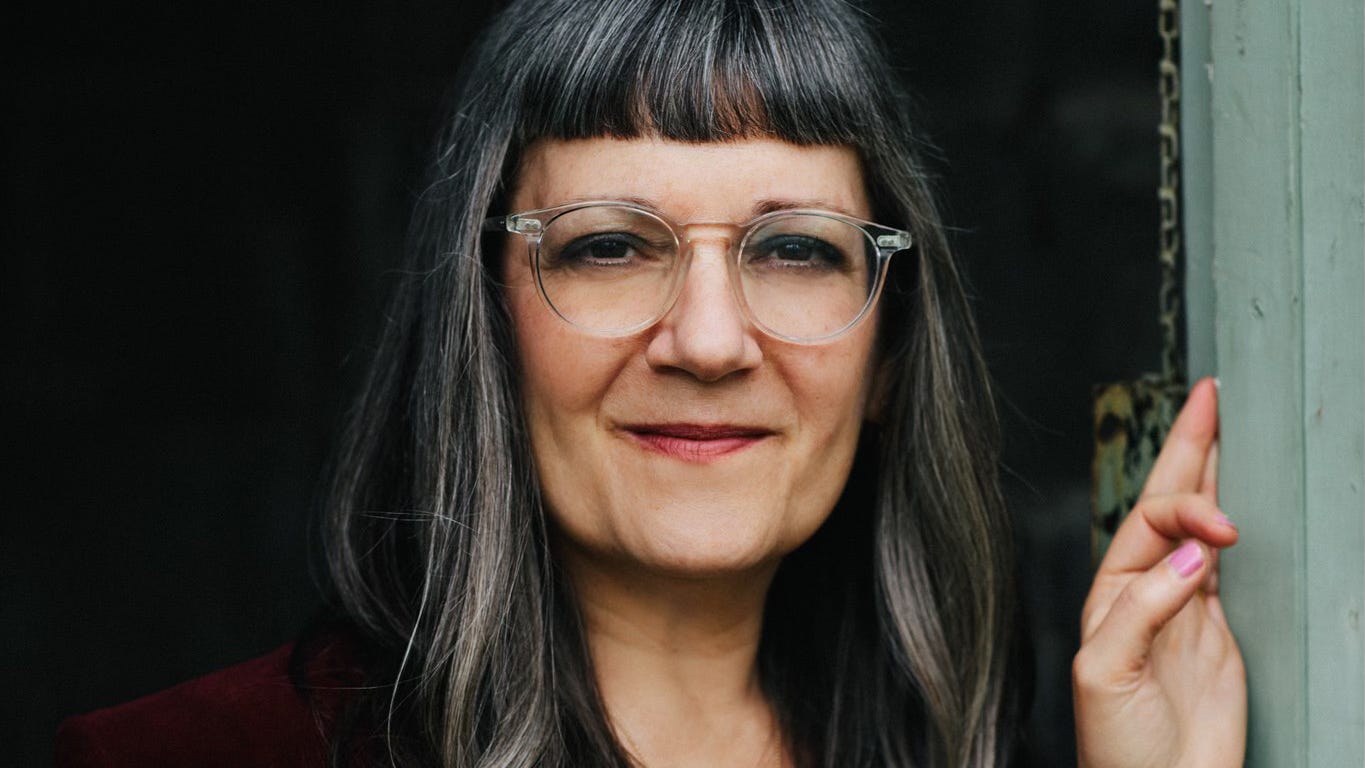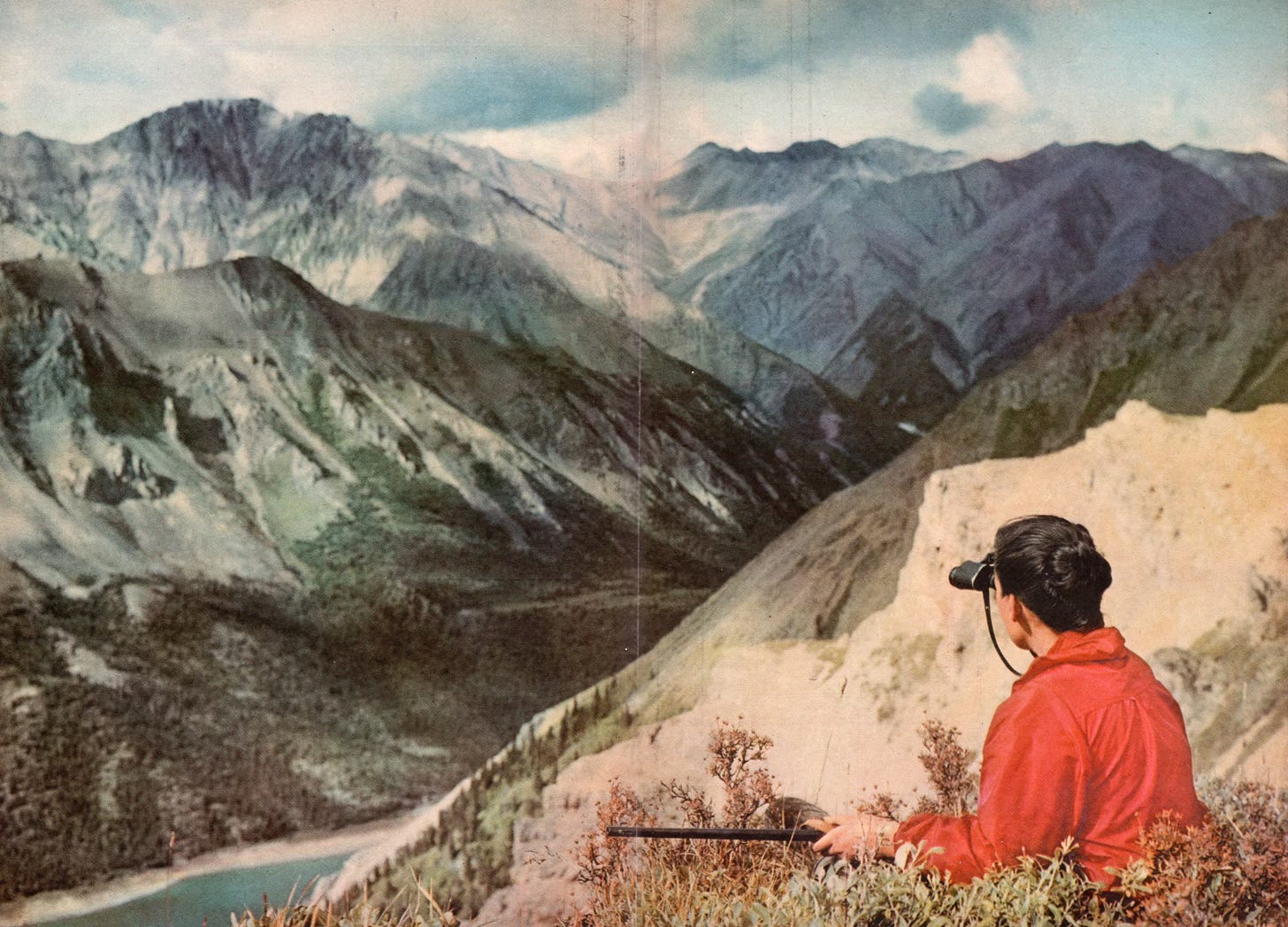Sari Botton on aging, eloping, and pissing off Hollywood royalty
The Oldster publisher feels like “journalism has lost its way,” but she’s not giving up yet.
In 2018, Sari Botton launched “Fine Lines,” a series about age and aging, at Longreads, where she was the essays editor. When Botton left the platform in 2020, she knew she wasn’t through with those topics.
“I’ve been obsessed with age and aging and milestones and when you’re supposed to meet them, since I was a little kid,” Botton tells Depth Perception. “I was always out of step with my peers. I was always doing things too soon or too late. And it made me very self conscious: What was my age? What was I supposed to be doing?”
One night, a little over a year after leaving Longreads, she had a dream that she started a magazine called Oldster. “I woke up in the morning, made a joke about it on Twitter, and then I realized, Oh wait, actually, that’s a pretty good name. And this could be fun,” says Botton, now 58 and living in Kingston, NY. “I started it on Substack, and immediately it took off.”
Today, Oldster has around 48,000 subscribers, about 2,400 of them paid. It’s perhaps best known for the Oldster Magazine Questionnaire, whose respondents include writers Susan Orlean, Lucy Sante, Will Hermes, Cheryl Strayed, and Elizabeth Gilbert, and musicians Kathy Valentine and Neko Case. Meanwhile, Botton, the author of a 2022 memoir in essays called And You May Find Yourself...Confessions of a Late-Blooming Gen-X Weirdo, publishes two other Substacks: Memoir Land and Adventures in Journalism.
Depth Perception has its own questionnaire, called Leading Questions, which Botton was kind enough to answer in a recent phone interview. The following has been edited for length and clarity. —Mark Yarm
Why did you become a journalist?
It was a complete accident. When I was a junior in college, my dad and my boyfriend at the time separately sent me the application for the Newsday/New York Newsday internship, which was a highly coveted thing. I said to them, “Sorry, I’m a playwright.” For some reason I did the application anyway. And it was a lot of work.
I’d never written for a newspaper before, but somehow I got one of 30 slots out of something like 3,000 applications. They put me on the arts desk, where Caroline Miller was my editor, and she just threw me in the deep end. I wrote two articles a week for three months, and I got the bug. I was like, “Okay, I want to keep doing this.”
What story of yours are you proudest of?
It’s a short personal essay I wrote for the New York Times City section in 2007 that I still love and always come back to and send out. And it’s rare for me to continue to like something after it's been published. It’s called, “It’s Not Over Until the Bride’s Father Sings,” and it’s an essay I wrote about eloping and breaking my father’s heart. He was the cantor at Central Synagogue for many years and everyone’s favorite wedding officiant. I went rogue, and I eloped to City Hall with my non-Jewish husband.
She was among the most important journalists of her time. Why hasn’t anyone heard of her?
In the Mad Men era of magazine journalism, Virginia Kraft was deadly with a rifle and penned epic, deeply reported features. She hunted with kings, drank with Hemingway, and traversed six continents to take down all of the Big Five trophy animals. So how did she get lost to history?
"We love every aspect of this story — the subject, the reporting, the writing, the structure, the formatting, the photos, and the pull quotes — were tremendous, all around."
—The 2024 Newhouse Mirror Awards
Long Lead presents: THE CATCH by Emily Sohn. Read it for free, today.
What story of yours do you most regret?
In 1996, I interviewed Jeff Bridges for W Magazine, where I was a reporter, and I filed what I believed was a moving and fair portrait of a great actor and good person who has his priorities straight and doesn’t care about image or other bullshit. And my editors wanted something more sensational. So they made me schedule a second interview with him at a bar and not let him get any food. They literally said “liquid dinner.”
I captured him saying some really ungenerous things about Barbra Streisand, who was directing him in The Mirror Has Two Faces at the time. And my editor put those quotes in the lede. And I was mortified. And later, I saw Jeff Bridges at an event, and he took me to task. And the one good thing about that was that he did it kindly and privately, because he really is the mensch that I captured in my first draft.
What’s one app/tool/service you cannot do your work without?
While I don't want to be a shill for the platform, and I’ve often had issues with their social and political choices, I couldn’t do what I’m doing right now and make a living at it without Substack. They’ve got this formula that just works — an easy-to-use blogging CMS combined with the best aspects of crowdfunding and social media virality.
What’s the best journalistic career advice you ever received?
I don’t remember who told me this, but when interviewing subjects, share your own anecdotes and it will disarm them. If an interview feels more like a conversation than an interview with a capital “I,” your subject will relax and reveal more.
What is the worst journalistic career advice you’ve ever received?
“Don’t ask questions a subject’s publicist says not to ask.” You might have to agree to that to get the interview. But if you get the interview, sneak in those questions at the end, after you’ve gotten everything else you need. They’ll either answer or they won’t, but you have the rest in the can. And more than once, in my case, that has happened, where the subject went ahead and answered the questions anyway with the publicist, like, glaring at me across the room.
"When interviewing subjects, share your own anecdotes and it will disarm them. If an interview feels more like a conversation than an interview with a capital ‘I,’ your subject will relax and reveal more."
What longform nonfiction writer do you envy the most?
Two come to mind: Molly Crabapple and Taffy [Brodesser-]Akner. Taffy is just such a good profiler, and also she has an essay in the New York Times Magazine about the story that inspired [her new novel] Long Island Compromise. It’s such a beautiful essay, and I’ve been thinking about it nonstop since I read it the other day.
Molly Crabapple, I really love her work. There’s an essay she wrote for the New York Review of Books in 2018 called “My Great-Grandfather the Bundist.” It’s about her great-grandfather’s role in the Jewish Labor Bund in Eastern Europe, in the early 20th century. They experienced and fought antisemitism, but they were anti-Zionist and believed it was wrong to displace Palestinians to make a Jewish homeland.
It’s so inspiring to me to think that these people who were in Eastern Europe between the two World Wars and experiencing pogroms were still so progressive in that way. Before reading that essay, I never knew that such a thing existed. It’s been very inspiring to me. I share it with people all the time; I reread it all the time.
What makes you think journalism is doomed?
What’s happening right now with news organizations like the New York Times and so many others, where they’re blasting Biden and giving Trump a big fat hall pass. I just feel like journalism has lost its way. They’re going for what’s sensational and what they think is going to get them clicks and money, and they’re not really doing their job as the Fourth Estate.
What makes you feel hopeful for the future of journalism?
Independent worker cooperatives like Hell Gate and Defector, because they’re not beholden to advertisers or charitable foundations. And so there’s an integrity to their coverage that really can’t be matched.
What would you do if you didn’t have this career?
I often wonder if I should have acquired more sustainably marketable skills. Sometimes I think I should find a backup career like becoming an MRI technician. Something recession-proof or journalism-is-dying-proof. And believe it or not, I’m actually thinking about someday becoming a lay chaplain. One of my journalism professors has done that in retirement.
I have a gentle temperament, and I like helping people through difficult times. I’m good at setting people at ease. I would maybe like to feel more useful. Although I get the loveliest notes from the older segment of my Oldster audience, telling me how much they get from Oldster. Some of them will say, “It makes me want to keep going on.”
And so I do feel like I am doing an overall good with Oldster and Memoir Land. But I would like to feel more directly useful sometimes. And also, who knows how long I’ll be able to keep doing this lucratively?
Further reading from Sari Botton
“How to Go Gray” (Oldster, June 28, 2024)
“It’s Not Over Until the Bride’s Father Sings” (New York Times, June 17, 2007)
“It’s Never Too Late For Your First Tattoo” (Literary Hub, June 14, 2022)
“I said good riddance to New York, then Covid made me miss it” (Guardian, April 14, 2021)
“After Fifteen Years, I Stopped Panicking, Started Declawing, and Finally Published My Memoir” (Catapult, June 16, 2022)









Sari, you are an absolute gem! I loved every answer.
Thanks for having me!